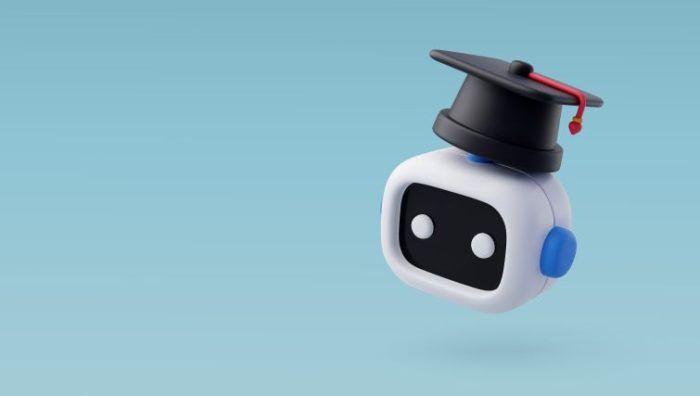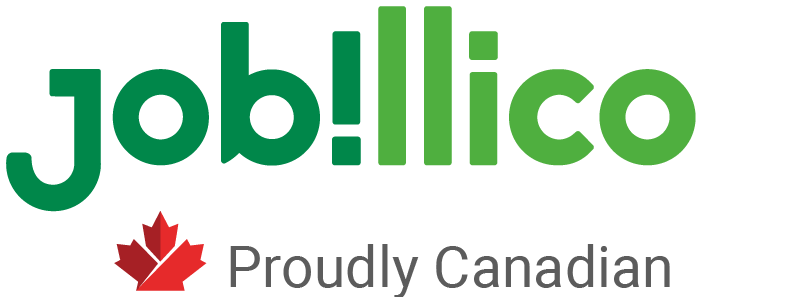How the AI-Driven Job Market is Affecting New Grads
 Publié le 26 June 2024
Publié le 26 June 2024
People starting their careers are stepping into a new era of hiring and recruitment, and they need to know how the AI-driven job market is affecting new grads.
The AI buzz is all over us—from OpenAI’s chatGPT and Microsoft’s Bing to xAI’s Grok and Perplexity. You can barely scroll a page on the internet without coming across one or two of these headliners about the future of artificial intelligence and its potential impacts.
But your internet feed is not the only thing AI might be coming for. According to Goldman Sachs’s report, an AI shift could lead to the automation of over 300 million equivalent full-time jobs. While that does not translate to direct lay-offs, there’s still a chance over half of this figure will have their jobs taken over by smart bots.
For new graduates coming into the job market, this is not good news. Less job-skill demand, stricter recruitment processes, and higher job competition compared to a decade ago have all resulted in a more difficult job market for those at the start of their professional lives..
However, there are also speculations on how AI can help create new jobs, ensure constant market demand, increase value delivery, and potentially boost the overall economy by $7 trillion in GDP.
So, AI is not necessarily a dead-end, and recent graduates can take advantage of this period to prepare themselves for how the AI-driven job market is affecting new grads .
The Not-So-Good Part Of An AI-Driven Job Market
Pierce Hogan, Owner at Varied Lands, says, “AI is something we could barely imagine a century ago. But today, it’s everywhere — on smartphones, computers, offices. No one can underscore the benefits of these dynamic programs, especially when it comes to boosting workplace productivity and reducing human errors.”
“Despite all these positives, we can’t also ignore the potential disruption it brings to the job market. Companies are rapidly integrating AI into their workflow either to assist existing workers or entirely replace them”, Pierce continues.
In late 2023, Suumit Shah, CEO of Duukan, openly announced how he laid off 90% of his company’s customer support team and used an AI named Lina to take over their roles.
That’s just one of the few examples of layoffs that came out with the introduction of generative AI technologies. Thousands of other companies are taking similar steps to cut costs behind the scenes. And this is going to lead to:
- OverSaturated Supply Pool
In January 2024, Duolingo laid off over 10% of its contractor workforce while introducing AI to translate content. Swedish furniture retailer Ikea phased out its call center team and introduced an AI program called Billie to handle customer queries. Salesforce and Google also laid off hundreds of employees at a time that coincided with the AI buzz in late 2023 and early 2024.
These layoffs continuously increase the number of job applicants available, which means new grads are coming in to meet an already saturated job pool. As a result, you have to put in twice or thrice the effort to actually see some results.
- Automation Impacting Traditional Entry-Level Roles
Traditional entry-level roles such as data entry clerks, customer service representatives, retail cashiers, and administrative assistants are bound to see more cuts than other advanced ones like strategic consultants and creative directors.
“Basically, this takes away the usual starting point of most grads and increases the recruitment standard. For instance, before artificial intelligence became a thing, companies would hire data interns for data-entry clerk roles. Now, that’s no longer possible since AI can handle the same role more effectively. To make a recruitment cut, you need a proficiency level of at least a professional data analyst or a data scientist”, Jerry Han, CMO at PrizeRebel, says.
The same goes for junior development roles — for websites or application programs. Recently, Nvidia’s CEO, Jensen Huang, presumptively encouraged kids not to learn coding anymore since AI will handle it in the near future.
- Increased Demand for Tech Skills
We’re in the tech era, and there’s so much AI fever all around.
According to Derek Pankaew, Founder of Listening, “Newer startups are pivoting towards the tech sector while existing non-tech brands are including tech products in their offerings. Integration of programs and software is also at an all-time high, thanks to the rapid AI growth pioneered by firms like OpenAI and Google.”
This rush has also increased the demand for tech literates and graduates proficient in one or more tech skills. As for non-tech skills, companies believe they can develop an AI program capable of portraying the same competencies.
So, an AI-driven market pushes you to either learn beyond the boundaries of your college degrees or remain stale as you compete with AI for the same role.
- AI-Powered Recruitment Processes and Resume Screening
Gone are those days when our hiring process had so much human touch, from the first stage of resume and CV submission to interviews. Now, approximately 42% of recruiters surveyed currently use an Applicant Tracking System and AI recruitment software. Another 81% of recruiters plan to invest more in automation to streamline the hiring process in 2024.
The downside of this approach is the lack of human touch, the inability of AI to gauge your personality and soft skills perfectly, and unintended bias due to the algorithm put in place.
Besides, most AI-powered recruitment programs filter candidates based on specific cover letter keywords. And that means they can miss out on variations and other relevant but non-indexed keywords in the cover letter or resume.
- Challenges in Job Security Due to Rapid Technological Advancements
Logan Mallory, Vice President of Marketing at Motivosity, says, “No one wants their job taken away after going through rounds of recruitment and submission of countless application letters just because an AI program can do the same, faster. And that’s why there’s so much pressure to continuously upskill now more than ever.”
Don’t also forget that AI impacts your projected income. Take the content industry as an example. Freelance writers and content creators are either offered a salary cut since they have AI programs to assist them or as their replacement.
4 Ways New Grads Can Gain An Edge In AI-Driven Job Market
As with any other era-changing innovation, there are always two groups of people — those who believe AI will positively transform the job market and those who think AI-driven markets will disruptively increase human layoffs.
If we’re being honest, both perspectives are genuine. For instance, at least 65,000 job cuts were announced in April for US-based companies, and over 85 million jobs will be replaced by 2025. On the positive side, AI could also create about 97 million jobs while boosting workplace productivity by 80%.
Whichever one is bound to happen, newly graduated individuals must proactively learn to ride the wave with these tips and gain traction regardless of the challenges posed.
- Develop Necessary Soft Skills
According to Grant Aldrich, Founder of OnlineDegree, “Not everyone needs to understand how Python and Javascript work in order to get a job. Those are all hard skills that are not necessarily crucial in your line of operation. However, soft skills like communication and problem-solving, even in illogical situations, make you an invaluable asset over automation tools and AI.”
Undoubtedly, AI programs are incredibly smart and will grow more intelligent with time. But they are still far from manifesting unique features that make us human, such as:
- the ability to think outside the box and logic for solutions,
- the ability to establish genuine human connection as seen during brand customer support,
- and how we perceive or understand individual intent.
They also lack sufficient emotional intelligence and zeal-driven adaptability to situations. Those are unique strengths you can leverage to remain valuable and catch the attention of your dream employer.
- Gain Hands-On Experience With AI And Machine Learning Projects
Tom Golubovich, Head of Marketing and Media Relations at Ninja Transfers, says, “If your degree is tech or program-development-based, you can participate in internships, coding boot camps, online courses, or personal projects where you build and deploy machine learning models, analyze datasets, and solve specific problems using AI techniques.”
“Non-techies can also participate in boot camps and take on roles such as project manager, technical writer, sales and marketing lead, business analyst, ethics specialist, and so on, for AI projects,” Tom adds.
The most important thing is to gain hands-on experience working on AI-related projects while building a robust portfolio and cover letter that moves the needle. This approach helps your resume stand out among many others; after all, most recruiters prefer AI-oriented applicants to those who are not.
- Pursue Relevant Tech Certifications And Online Courses
Besides gaining experience, you should upskill to add more tech competencies if you have a degree in tech or aim to work with larger tech industries.
For instance, new grads with a certificate in data analysis can upskill to become data scientists in the AI industry. In the cybersecurity industry, graduates with a degree in security engineering can upskill to become security architects with relevant experience and knowledge around AI security risks.
Note that you don’t necessarily need to enroll in a college to upskill again. There are tons of courses and programs online, especially those that offer self-paced learning. Find one with good reviews and provisions that fit your goals.
Due to evolving AI algorithms and newer tech innovations, you might also need to reskill. This means learning new skills or training in a different area to adapt to changing job requirements or transition into a new role or industry.
- Network With Professionals In The AI Industry Through Events And Online Platforms
Brooke Webber, Head of Marketing at Ninja Patches, believes one of the fastest ways to get employed in a highly competitive job market is to network with professionals in your target industry. “These people are already there, so they know what works and can share valuable tips to increase your odds of getting hired. Moreover, the next professional you network with might be the link to your dream employer.”
Spend time on social platforms like LinkedIn to build useful relationships with industry-relevant individuals. Attend virtual and physical events, join boot camps and podcasts, and set aside time for webinars.
Most importantly, build a presence on social platforms and communities. That’s where most referrals and recommendations come from.
Conclusion
The AI effect is real, and we are already seeing some impacts—both positive and negative. For those worried about how the AI-driven job market is affecting new grads, you need to be proactive and keep yourself properly positioned to be on the positive receiving end.
First, develop necessary soft skills such as good communication, conventional and unconventional problem-thinking capacity, and the ability to adapt to rapidly changing situations. Afterward, gain hands-on experience through boot camps and internships, upskill and reskill wherever necessary, and network with industry professionals for possible opportunities.







